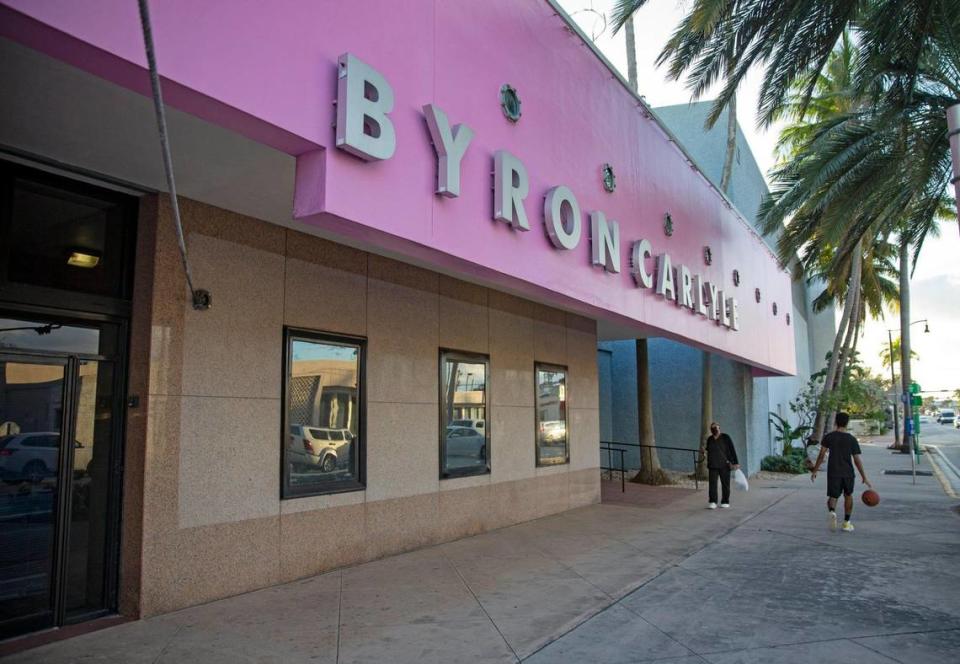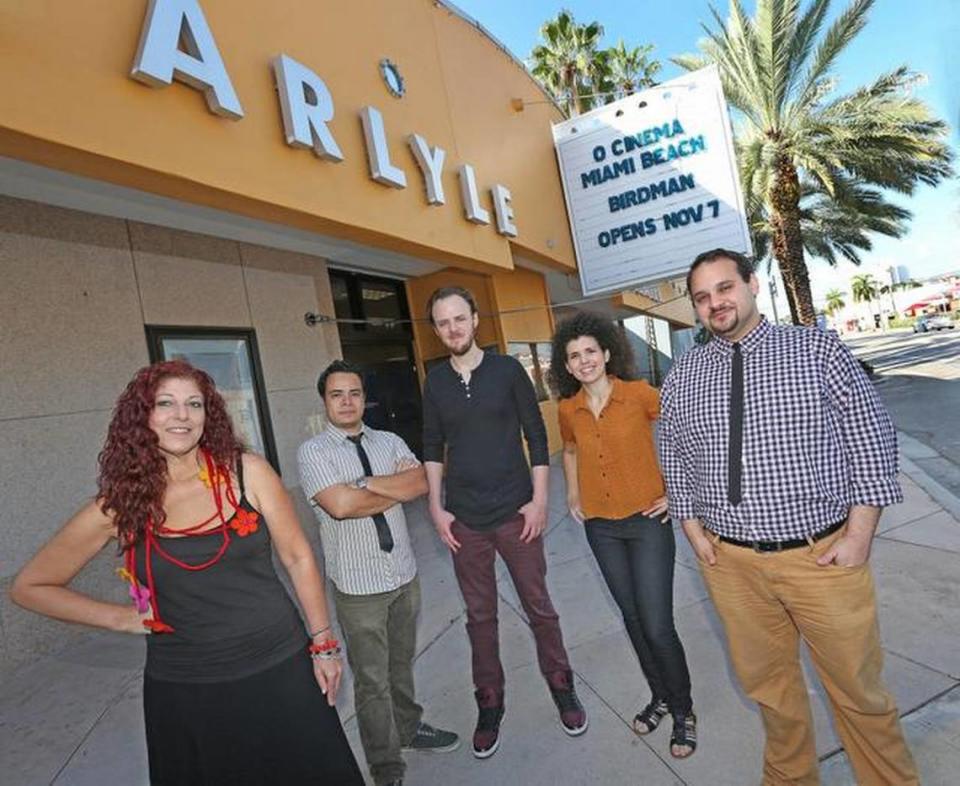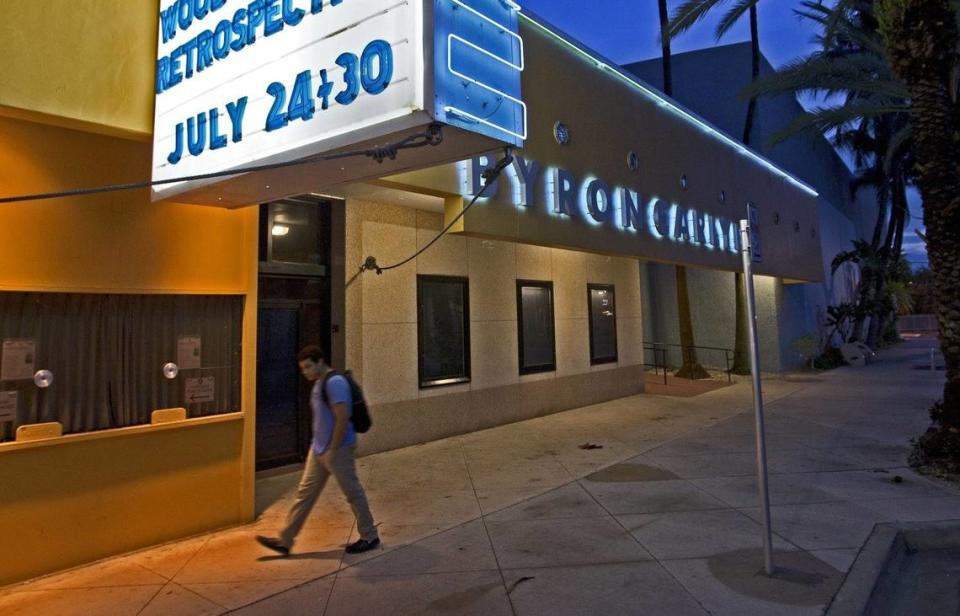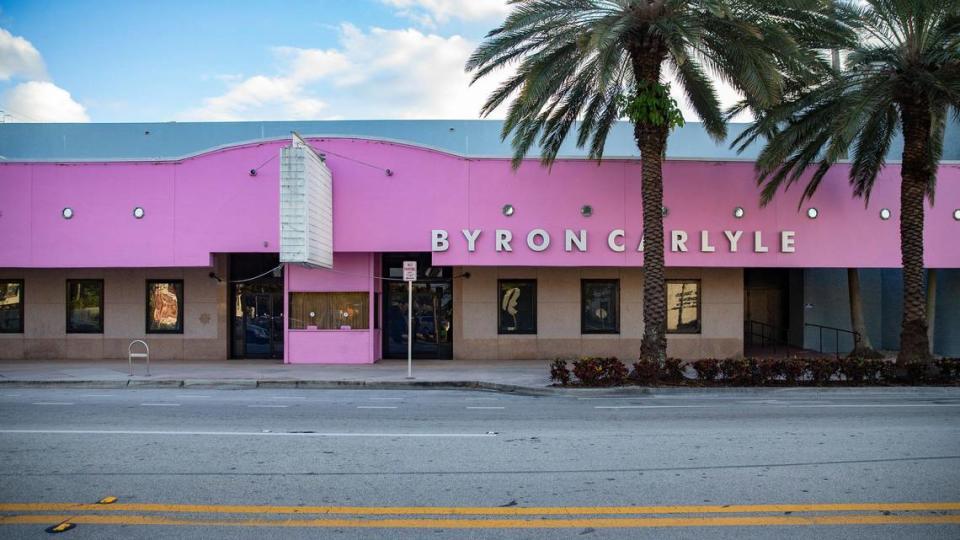Miami Beach has a plan for the abandoned Byron Carlyle theater. Here’s what we know
Ever since the Byron Carlyle Theater closed in 2019, North Beach residents have been wondering what will become of the deserted movie theater. Miami Beach city commissioners have a plan — and they’re looking to expedite it.
During a Wednesday commission meeting, Commissioner Tanya Bhatt detailed a plan for a cultural complex at the theater, located at 500 71st Street, that she said would better suit the needs of North Beach. That includes a movie theater, a black box theater, space for free children’s art classes, office space for local arts nonprofits, artist studio space, a recording studio, affordable housing and maybe even a cafe.
“It’s all down in South Beach,” Bhatt said, referring to the majority of Miami Beach-based arts institutions. “We would like to have an anchor institution that has the same kinds of opportunities for residents of North Beach and metro Miami and wider to come and enjoy arts and culture.”
Commissioners were especially interested in including affordable and workforce housing in the plan for the complex, citing concerns from residents driven out by rising rents in North Beach.
“It’s been sitting there empty forever,” said Commissioner David Suarez, who co-sponsored the item. “You’re not going to have the perfect solution that makes everyone happy, but I think this is the best solution for our city.”
The city will fund the Byron Carlyle project using the over $30 million it secured from the $159 million in bonds voters approved for arts infrastructure in 2022. Rent from the affordable housing in the proposed complex could be used to offset some of the costs of running the arts and cultural facilities and free community programming, Bhatt said.
“Which means that we taxpayers will not be subsidizing the programming going forward. It means that when the state of Florida decides to cut the arts grants to the organizations that are based in the Byron Carlyle, they won’t be scrambling to try to make up missing money,” Bhatt said, referencing the $32 million in arts funding that Gov. Ron DeSantis cut from the state budget.
Long gone are the golden days of The Byron Carlyle Theater, which first opened in 1968. The city purchased the building in 2001 and partially renovated it, and O Cinema operated it from 2014 to 2018. But the building fell into disrepair, especially due to flooding issues, and the city closed it in 2019. Though past commissions wanted to salvage the building, Bhatt said it didn’t make sense to spend money to restore it as just a movie theater. In 2021, commissioners rejected a proposal to sell the land to developers to build apartments and a cultural center.
The plan Bhatt is supporting seems to be more popular. It was spearheaded by The Friends of the Byron Carlyle, a group of residents and local arts organizations including Miami Light Project, FUNDarte, Miami New Drama, Rhythm Foundation, Miami Beach Pride, Young Musicians Unite, Dance NOW! Miami, Bruce Carter, Roberto Espejo and David Sexton.
Commissioner Alex Fernandez said he has received emails from residents who initially wanted to save the existing building but now support the current proposal. He described the idea as a “win-win opportunity.”
The city is also considering next steps for “reimagining” The Fillmore Miami Beach at the Jackie Gleason Theater, a beloved yet deteriorating performing arts venue.
During the meeting, Daniel Alzuri, the city Facilities and Fleet Management assistant director, said the city is working on a detailed proposal to include affordable housing with a consulting firm. He noted that the new building may open in 2027, but that goal may change. Commissioners urged Alzuri to come back with a proposal as soon as possible.
“The community is really suffering,” Commissioner Kristen Rosen Gonzalez said. “That was an anchor.”
This story was produced with financial support from individuals and Berkowitz Contemporary Arts in partnership with Journalism Funding Partners, as part of an independent journalism fellowship program. The Miami Herald maintains full editorial control of this work.





